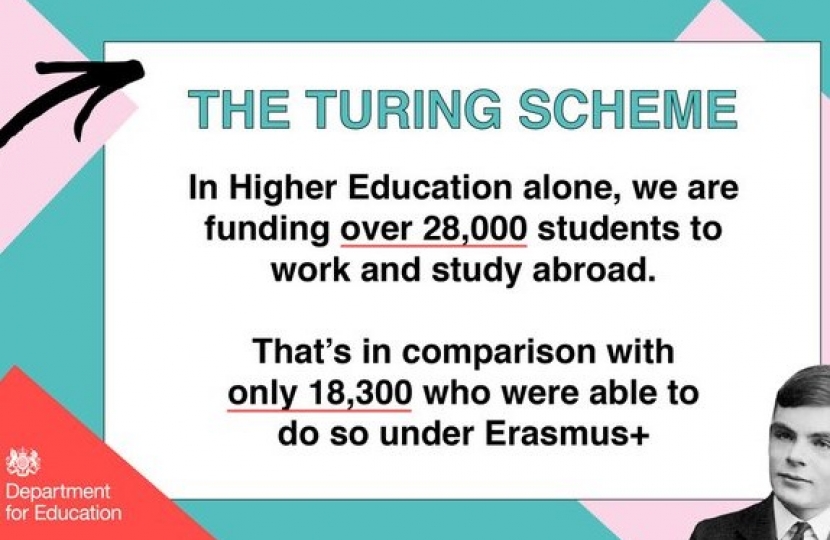
Richard has welcomed the news that 40,000 students will be able to study and work abroad thanks to the government’s new Turing Scheme. Universities and schools are due to be told this week that their bids for funding have been successful.
Over 120 universities, as well as schools and further education colleges across the UK, will be awarded grants from the £110m Turing Scheme – which will see 48% of places go to those from disadvantaged backgrounds. The total number of individual placements supported this year through the £110m scheme stands at over 40,000. This includes 28,000 placements for university students compared with only 18,300 under Erasmus+ in the academic year 2018/9.
Richard Fuller, MP for North East Bedfordshire, said:
The Touring Scheme will help a new generation seize the opportunities of Global Britain. At the heart of the Government’s post-Brexit vision is an ambition to create a truly Global Britain where we learn, work and trade with countries well beyond Europe’s frontiers. Studying and working abroad provides once-in-a-lifetime opportunities for young people that until now has been an opportunity disproportionately enjoyed by those from the most privileged backgrounds.
That is why through our new £110 million Turing Scheme, we are giving 40,000 students the chance to study around the world – including in countries like Canada, Japan and the USA – and we will make sure that 48 per cent of places go to those from disadvantaged backgrounds.
The Turing Scheme, which has replaced the UK’s participation in Erasmus+, gives young people the opportunity to benefit from working and studying abroad, while boosting our ties with international partners in the process.
As part of the new global scheme, Canada, Japan and the United States are amongst over 150 international destinations where UK students will be funded to take up work and study placements alongside popular European countries like Germany and France.
The scheme also aims to improve social mobility across the UK by targeting areas which had seen lower uptake up of the Erasmus+ programme, including across the Midlands and North of England – with universities in the West Midlands set to receive the most funding.
Ministers have set out a range of measures to improve access to international opportunities through the programme, including funding for travel and expenses such as passports and visas, as well as a grant for living costs, to tackle the barriers some students face to studying overseas. Extra support has also been guaranteed for preparatory visits to make sure placements meet the needs of participants with disabilities and special educational needs.
The Turing Scheme - which was announced last year - is named after pioneering UK war hero and father of modern computing Alan Turing, who studied abroad at Princeton University before going on to crack the Enigma code in World War Two.
For more information, please visit this page.

